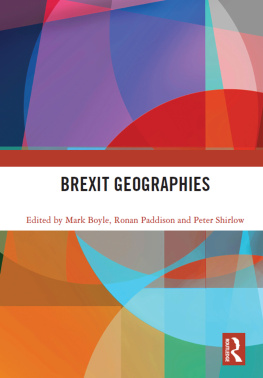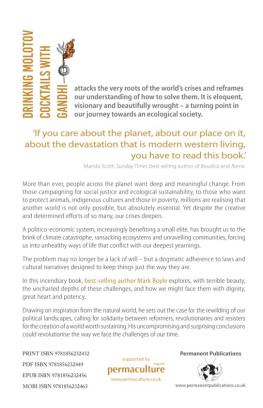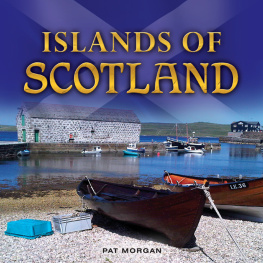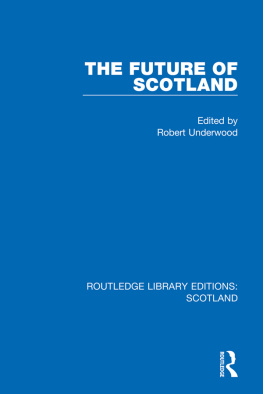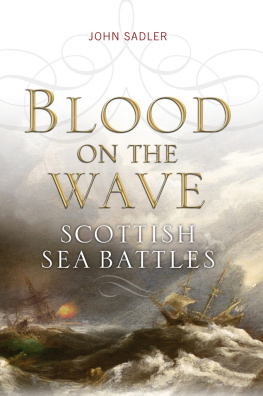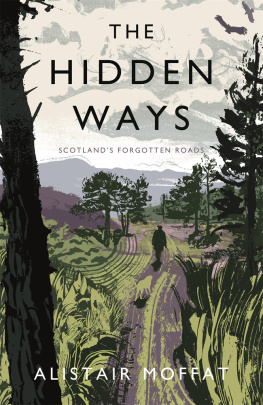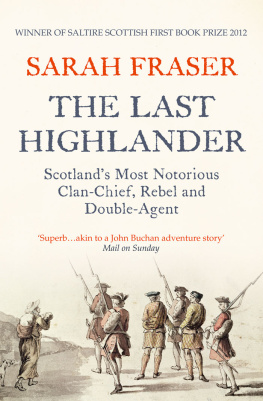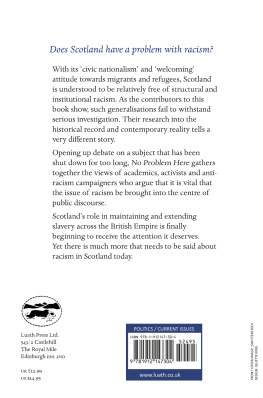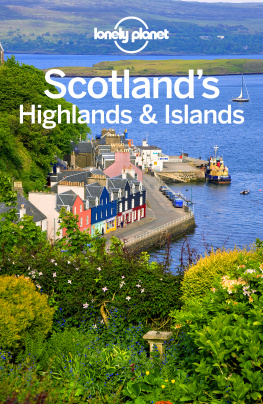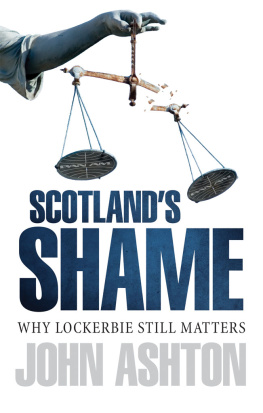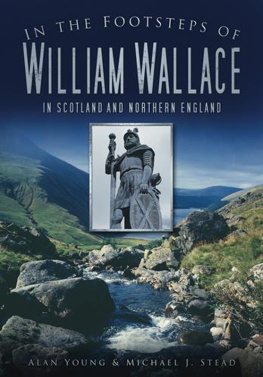METROPOLITAN ANXIETIES
This book is dedicated to the forgotten Irish who found rest but not dignity in the paupers graves of Scotland
First published 2011 by Ashgate Publishing
Published 2016 by Routledge
2 Park Square, Milton Park, Abingdon, Oxon OX14 4RN
711 Third Avenue, New York, NY 10017, USA
Routledge is an imprint of the Taylor & Francis Group, an informa business
Copyright Mark Boyle 2011
Mark Boyle has asserted his right under the Copyright, Designs and Patents Act, 1988, to be identified as the author of this work.
All rights reserved. No part of this book may be reprinted or reproduced or utilised in any form or by any electronic, mechanical, or other means, now known or hereafter invented, including photocopying and recording, or in any information storage or retrieval system, without permission in writing from the publishers.
Notice:
Product or corporate names may be trademarks or registered trademarks, and are used only for identification and explanation without intent to infringe.
British Library Cataloguing in Publication Data
Boyle, Mark.
Metropolitan anxieties : on the meaning of the Irish Catholic adventure in scotland.
1. Irish--Scotland--Ethnic identity. 2. Irish--Scotland--Religion. 3. Irish--Scotland-
Social conditions. 4. Catholics--Scotland--Biography.
I. Title II. Series
305.891620411-dc22
Library of Congress Cataloging-in-Publication Data
Boyle, Mark
Metropolitan anxieties : on the meaning of the Irish Catholic adventure in Scotland / by Mark Boyle.
p. cm.
Includes bibliographical references and index.
ISBN 978-0-7546-3379-2 (hbk. : alk. paper) 1. Irish--Scotland--History. 2. Irish--Scotland-Social conditions. 3. Immigrants--Scotland--History. 4. Catholics--Scotland--History. 5. Families--Scotland--History. 6. Oral history--Scotland. 7. Collective memory--Scotland. 8. Anti-Catholicism--Scotland--History. 9. Scotland--Ethnic relations. 10. Irish--Migrations--History. I. Title.
DA774.4.I72B698 2011
941.10049162--dc22
2011009330
ISBN 13: 978-0-7546-3379-2 (hbk)
Contents
Tables
A summary overview of the oral history archive
Biographical details of the oral history interviewees
Figures
Division of sociological labour
Advert which appeared in the Scottish Catholic Observer and Celtic View
Schedule for the oral history interviews
Broomielaw, River Clyde, 1899. A place where migrants arrived to set up a new life in Scotland and from where family holidays to Ireland began and ended (Courtesy of Glasgow City Archives and Special Collections)
The family holiday, Connemara 1955 (Property of the author)
The family holiday, Donegal 1964 (Property of the author)
Free Derry Corner 1972. Irish Catholic families often feared passing through Northern Ireland on their way to the Irish Republic but sometimes political curiosity took them off the beaten track and many a covert photograph was taken (Property of the author)
The Belfast Ferry 1972. Irish Catholics often found themselves on the boat to Ireland with Orange Flute Bands who were going across to Belfast to celebrate the 12th July parade and marching season. These encounters could be fun but they the could also be feared (Property of the author)
Most popular rebel songs in the rebel music scene
Pub front, Garngad, 1936. The working mans pub became a central hub for the social life of Irish men and a ubiquitous feature of the Glasgow landscape (Courtesy of Glasgow City Archives and Special Collections)
The sacred in the secular, Dalmarnock 2007. The Church brought faith and purpose to lives that were otherwise lived in dire poverty and overcrowded housing (Property of the author)?
Fountain, Phoenix Park, Cowcaddens, 1911. Glasgows late nineteenth- century liberal and civic ethos permeated its public spaces and announced for later generations the citys comparative modernity (Courtesy of Glasgow City Archives and Special Collections)
Hope St, Central Glasgow 1950. Glasgow city centre danced to the noise and the din of a thriving modern metropolis (Courtesy of Glasgow City Archives and Special Collections)
Twomax factory and William Wiseman & Sons, Cleaning Waste Manufacturers Hutchesontown, 1956. Working men and women often toiled in gritty industrial environments, some of which could be comparatively dangerous and hazardous (Courtesy of Glasgow City Archives and Special Collections)
Many times I was forced to conclude that this book would never see the light of day. Oral history testimonies were collected from members of the Irish Catholic community in Scotland in the period 20002002. The final manuscript was not completed until May 2011. The scale of the transcription processes and the volume of analyses undertaken was part contributor to the delay. A personal relocation from the University of Strathclyde in Glasgow to the National University of Ireland Maynooth in County Kildare in 2007 was also a factor. The quest to understand the complexities and nuances of the works of French philosopher, novelist and political activist Jean-Paul Sartre also undoubtedly frustrated speedy completion. In truth however, the delay in completing the work bears witness to the awesome sense of responsibility I have felt in being entrusted with peoples life stories and serving as a guardian of precious fragments of knowledge and insights. To ask seriously the question of the meaning and intelligibility of the Irish Catholic adventure in Scotland is to make a most fundamental intervention in the story of this community. Eventually however, lest the sense of responsibility breed complete paralyses, there comes a time when it is essential to declare a reading of the archive. And in any event, in due course written transcripts and oral recordings will be made available which in themselves will serve as an important research resource. Through further scrutiny of this archive it will be possible to debate and correct the necessarily partial interpretations furnished here.
The work clearly could not be completed without the tremendous generosity of the 76 members of the Irish Catholic community in (the west of) Scotland who gave more than their time. Words cannot express the warmth, support, comradeship, and solidarity participants afforded the author in the period 20002002 in particular. Participants invited me with open arms into their homes, offered meals, tea and coffee, Tunnochs tea cakes, blessings, holy water, and lucky charms, and shared intimate details of their lives which I had no right to be privileged to hear. It is no exaggeration to say that stories so moved me that on leaving participants houses I was often deeply touched and on occasions emotionally exhausted. Above all else then, tribute needs to be paid to the cast, a towering community with enough collective wisdom to fill a dozen libraries over. Undoubtedly my efforts to capture their stories have fallen woefully short. And many will disagree with the sense I have made of particular biographies. But I hope this manuscript does sufficient justice to those who gave of their time and support that they feel the outcome on balance worthwhile and valuable.
Acknowledgements also go to the academic support apparatus I have drawn upon throughout the work. Previous colleagues at the University of Strathclyde in Glasgow, in particular Robert Rogerson, Graham Hollier, Michael Pacione, Guy Baeten, Arthur McIvor and David Miller deserve particular mention for creating a convivial and encouraging mileu in which to work. Current colleagues at the National University of Ireland, Maynooth have also provided the spur which has allowed the work to be completed. In particular I am indebted to Rob Kitchin who besides being an inspirational colleague has proven to be a wonderful personal comrade, fellow traveller and confidant. Acknowledgements also go to Mary Gilmartin, Jim Walsh, Ronan Foley, Conor Murphy, John Sweeney, Dennis Pringle, Patrick Duffy, Gerry Kearns, Karen Till, Sean ORain, Chris Morash, Proinnsias Breathnach, and Brendan Gleeson, who have all helped along the way both directly and indirectly. Thanks also go to Mary Weld, Gay Murphy and Neasa Hogan for their administrative support, to Jim Keenan and Michael Bolger for cartographic and technical support, and to Interns David Martin and Grinne Corrigan for updating the oral archive using digital technology. A raft of other colleagues from Ireland and beyond have encouraged various aspects of the work, at various stages, including Denis Linehan, Willie Jenkins, Breda Gray, Joe Bradley, Audrey Kobayashi, Tom Devine, and Christine Milligan. In particular I am indebted to Audrey Kobayashi (Kingston, Ontario) for serving as a guiding light in the search for the merits of Jean Paul Sartre today.


